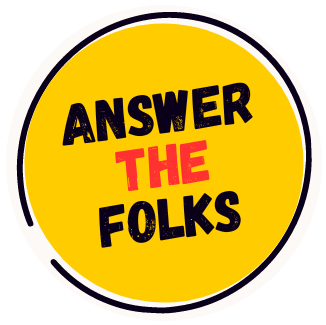Celebrating Passover: How to Respond Appropriately
Passover is one of the most important holidays in the Jewish calendar that celebrates the Israelites’ liberation from slavery in ancient Egypt. As the holiday approaches each year, you may receive well-wishes from Jewish friends and colleagues saying “Happy Passover.” However, as a non-Jew, you may be unsure of how to respond in a respectful and meaningful way. In this post, I’ll share some of the best responses to “Happy Passover” along with context about the holiday so you can participate in the celebration appropriately.
Thanking Someone for the Passover Greeting
One of the simplest yet most sincere responses is to simply say “Thank you.” Remember that the person offering the Passover greeting is wishing you well during this meaningful time of remembrance and freedom. Thanking them acknowledges their thoughtfulness.
You could say something like:
“Thank you, I appreciate the Passover greeting. Wishing you a meaningful celebration as well.”
Keeping it brief but polite shows that you received the message respectfully, even if you don’t fully understand or participate in the holiday traditions yourself. Thanking the person allows you to positively respond without claiming to celebrate the holiday in the same way.
Wishing Them a Sweet Passover
Another response that is respectful yet doesn’t assume your own observance is to wish the person a “sweet Passover.” The word “sweet” in this context refers to the hope that the holiday memories and experiences will be positive ones.
You could say:
“Thank you for the greeting. I hope you have a sweet Passover!”
Using “sweet” acknowledges the spirit of the holiday without implying your own religious practice. It’s a kind way to convey that you’re wishing them pleasant traditions and time with family or community.
Related: How to Respond to Happy Hump Day
Learning More About Passover Traditions
If you want to respond in a more interesting, conversational way, you could acknowledge that while Passover isn’t your own holiday, you find learning about different traditions valuable. This shows an open and respectful attitude.
A response along these lines could be:
“Happy Passover! I don’t personally observe the holiday but enjoy learning more about its history and meaning. Please feel free to share any traditions you especially look forward to this year.”
By inviting them to share more, you’re expressing curiosity to understand their celebrations better without claiming the practices as your own. It starts a dialogue about cultural learning and appreciation.
Recalling a Passover Experience
If you’ve had an experience with Passover festivities like being invited to a Seder dinner, you could fondly recall that memory in your response. Sharing a personal anecdote builds warmth and common ground.
For example:
“Happy Passover! I still have fond memories of the beautiful Seder dinner I attended a few years ago. Thank you for continuing this meaningful tradition each year.”
Referring to a specific positive experience you’ve had acknowledges the holiday without necessarily observing it yourself on an annual basis. The personal touch makes your well-wishes more thoughtful.
Related: How to Respond to Happy Easter
Understanding the Symbolism of Passover
You could also respond by highlighting something you’ve learned about the core symbolism of freedom central to Passover celebrations. This shows you’ve educated yourself on the holiday’s deeper meanings.
A response along these lines:
“Happy Passover! I appreciate the reminder this holiday season provides about liberation from oppression and the value of freedom. Best wishes for meaningful reflections and time with loved ones.”
By focusing on the freedom theme, your response is respectful of Passover’s important history and messages rather than your religious practices. It starts a thoughtful discussion you can both appreciate.
Wishing for a Meaningful Celebration
Keeping things simple by wishing the person a meaningful celebration is always a respectful way to respond. The meaning and remembrance at the heart of Passover is something anyone can appreciate.
“Happy Passover! I hope your celebrations this year are full of meaningful traditions and time with family/friends.”
This acknowledges the holiday greeting while focusing on what truly matters – connecting with loved ones and reflecting on heritage through ceremonial activities. Your well-wishes are sincere even if your observance differs.
Personal Experience Attending a Community Seder
I still have wonderful memories from a few years ago when I was invited to attend a Passover Seder dinner at my friend David’s synagogue. As a non-Jew, I was nervous about participating fully in the traditions but everyone made me feel incredibly welcome.
I was fascinated learning about the symbolism behind each item on the Seder plate like the matzah and bitter herbs. Reciting parts of the Haggadah in Hebrew despite not understanding the language was a unique experience. Watching people of all ages come together to remember their history and liberties moved me.
David’s family even made me feel like part of the celebration, asking me questions about the Exodus story and discussion points in the Haggadah. I appreciated their openness to having me learn about this meaningful cultural practice. The food was also delicious!
To this day, attending that Seder remains one of my fondest multi-faith community experiences. It gave me new respect for the holiday’s importance in Jewish identity and faith. I make an effort now to wish others a “Happy Passover” to acknowledge their traditions each year in a respectful way.
Learning More About Traditions Through Friend’s Sharing
A couple of years ago when a friend from work wished me “Happy Passover,” I responded by saying I appreciated the greeting but didn’t personally observe the holiday traditions. I asked if he wouldn’t mind telling me more about some of the customs he looks forward to each year with his family.
He was happy to share stories from Seder’s past like funny moments from asking the Four Questions in Hebrew as a child. I learned about the special foods they serve and the songs they sing together. It was fascinating to gain some insight into his family’s rituals beyond just the core religious aspects I was aware of from school.
Our conversation truly helped me feel more connected to the significance of his observance in a meaningful way. Now when Passover comes around, I try to wish others a respectful greeting while also letting them know I value learning from their experiences and points of view. Cultural sharing builds more understanding between all people, in my view.
Thoughts on the Freedom Theme
As someone who didn’t grow up with the Jewish faith, one thing I’ve truly come to appreciate after learning more about Passover is its universal message of freedom from oppression. The historical Exodus story is a profound reminder of humanity’s constant struggle for basic liberties from tyrannical forces.
While we all may interpret and celebrate freedom in our diverse ways, having a tradition that commemorates liberation so meaningfully each year through ceremony, storytelling and reverence seems profoundly important for any society. I find the theme resonates with me on a human level beyond religious conventions.
So when others wish me a “Happy Passover,” I try to recognize how the holiday spirit aligns with values of advancing justice, standing against subjugation, and reflecting on progress still to be made. Perhaps we could all benefit from keeping such a freedom-centric reminder at the heart of this season.
Thoughts on Meaningful Traditions
Connection to cultural heritage and remembering history through multigenerational activities will always be meaningful to me, whether specific religious beliefs are shared or not. The Passover traditions of coming together as a community, partaking in symbolic rituals, asking questions to spur thought, and retelling defining moments from the past seem so precious.
I imagine holding onto practices that build community memory and bring people face to face each year to ponder life’s deepest questions must give a tremendous sense of purpose and belonging. Even without fully participating in myself, seeing others derive such significance lifts my perspective.
So this Passover, I’ll be wishing loved ones meaningful celebrations while reflecting on traditions’ power to unite identities across the tests of time. Cultural festivities help shape rich legacies and that’s something I can certainly support.
A Touch of Humor
A few years ago, my friend Sarah messaged me “Happy Passover!” as the holiday was approaching. Not knowing the perfect response, I jokingly replied “Same to you…even though I’ll be eating bread all week instead of matzah!”
She laughed and said she appreciated my lighthearted acknowledgment of our different observances. We had a nice chat about some Passover recipes she was looking forward to making for her family.
A little self-aware humor can go a long way in cross-cultural exchanges, in my view. While respecting traditions, we don’t need to take ourselves too seriously. A universal language that helps bring people together is Laughter. So if an opportunity seems right, don’t be afraid to acknowledge cultural distinctions with an upbeat spirit.
Related: Respond to Happy Palm Sunday
Conclusion
In closing, I hope these examples have provided some respectful, thoughtful ways to respond to receiving a “Happy Passover” greeting that shows your acknowledgment without implying your religious practice. The holiday symbolizes important themes of freedom, heritage, and community that anyone can appreciate on some level.
Being open to learning about others’ meaningful celebrations and traditions is what truly builds understanding between all people. While our specific beliefs and customs may differ, taking an interest in cultural diversity strengthens empathy and fellowship worldwide.
This Passover, I encourage responding to greetings with care, warmth, and curiosity. Ask questions to gain new perspectives without judgment. Perhaps share a meaningful celebration from your background in return. Most of all, wish others a holiday promoting precious time with loved ones, civic pride, and humanity’s highest aspirations.
By respecting what inspires hope and togetherness for all, we can spread more light into this world throughout each special season. Chag Sameach!
FAQs:
Q1. As a non-Jew, is it okay to say “Happy Passover”?
A: Yes, it’s respectful to wish someone a “Happy Passover” as a way of acknowledging their celebration even if you don’t observe the religious traditions yourself. The well-wishes show acknowledgment and goodwill without implying your own observance.
Q2. What are some traditional Passover foods?
A: Common foods eaten during Passover Seders and celebrations include matzah (unleavened bread), gefilte fish, matzah ball soup, charoset (sweet apple and nut spread), bitter herbs like horseradish, and kosher lamb or beef. Wines are also traditionally part of the festivities.
Q3. What is a Passover Seder and what activities are involved?
A: A Seder is a special ritual dinner held on the first nights of Passover where the Exodus story is retold through symbolic foods, prayers, ceremonies, and questions. Activities include washing hands, eating specially prepared foods, drinking four cups of wine, discussing the Haggadah book, and saying blessings over the holiday traditions.
Q4: What are the core beliefs and history behind Passover?
A: Passover commemorates the biblical story of the Israelites’ liberation from slavery in ancient Egypt as described in the Book of Exodus. It celebrates God helping the Jews escape from the Egyptians through ten plagues and traveling to eventual freedom after the final plague resulted in the death of the Egyptian firstborn. The traditions serve to remember this defining act of Jewish deliverance from oppression.
Q5: How can I continue learning more about Passover outside of this article?
A: Talk to Jewish friends and family about their traditions. Visit a local synagogue Seder dinner as an observer. Read books on the historical context and rituals of the holiday. Search online for informative websites from reputable Jewish organizations. Stay open to cultural sharing opportunities that help you better understand meaningful celebrations in compassionate ways.
In conclusion, I hope this extensive blog post provided helpful information and examples of respectful ways to respond to “Happy Passover” greetings while learning more about the significant history and traditions of the holiday. Please feel free to continue our discussion in the comments below. Chag Sameach!

